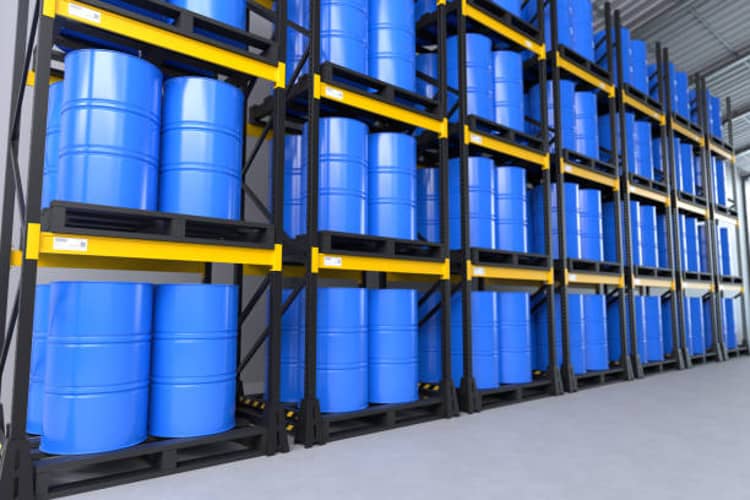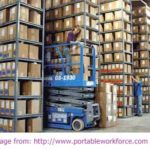Key Takeaways:
- Chemical wholesalers are a pivotal element in the efficiency and stability of the supply chain.
- Regulatory compliance and quality control are not just obligations but also competitive differentiators for wholesalers.
- The embrace of new technologies and global market trends is essential for the evolution and growth of the chemical wholesale sector.
Table of Contents:
- The Importance of Chemical Wholesalers in Supply Chain Management
- Quality Control and Regulatory Compliance in Chemical Distribution
- Global Trends Impacting Chemical Wholesale Markets
- Strategies for Cost Reduction and Efficiency in Chemical Distribution

The Importance of Chemical Wholesalers in Supply Chain Management
The intricate tapestry of the global chemical industry is held together by the pivotal role played by a chemical wholesaler. Standing at a crucial intersection between chemical manufacturers and a myriad of sectors requiring their products, wholesalers transport chemicals and navigate the complex demands of supply and demand. Their expertise in ensuring a steady stream of chemical supplies fosters stability within various sectors, preventing production disruptions and facilitating uninterrupted operations for businesses large and small.
Chemical wholesalers are the unseen saviors during sudden market shifts or supply chain disruptions. They efficiently manage substantial inventories, ensuring that sectors as diverse as pharmaceuticals, agriculture, and manufacturing have what they need when needed. Given the complexity of these tasks, wholesalers become critical players in the overall industrial fabric by providing reliable, timely, and efficient delivery of essential chemical products, thereby preventing costly downtimes.
Notably, with their extensive networks and expertise, wholesalers can also act as valuable consultants, advising customers on the best products for their needs, staying ahead of industry trends, and sometimes even aiding in navigating regulatory landscapes. This role is especially crucial in fluctuating demand or in response to international events that may disrupt the flow of raw materials. They ensure their clients’ resilience by providing strategic stockpiling options and adaptive supply solutions.
Quality Control and Regulatory Compliance in Chemical Distribution
Beyond the mere supply of chemicals, wholesalers bear the onus of assuring quality control and meeting diverse regulatory compliances. They stand at the forefront of preserving public health and safety by ensuring that chemical products adhere to a gamut of standards. In the chemical distribution industry, maintaining quality control and regulatory compliance is crucial, and using high-purity reagents is essential; for instance, KOH (potassium hydroxide) must meet specific standards for use in various applications.
This task is not simple; it encompasses diligent oversight over procurement processes, storage conditions, and transportation protocols. The goal is to maintain unimpeachable product integrity from the manufacturer to the end user.
Chemical wholesalers are thus expected to be well-versed in local and international regulatory frameworks, implementing them throughout their operations—from correct labeling and secure transportation to safe storage and disposal.
For wholesalers, compliance is not merely a legal mandate but also a decisive factor in maintaining credibility and building trust with partners and customers. It is a continuous process demanding vigilance and responsiveness to legislative changes. Those who excel in upholding the highest standards differentiate themselves and can capitalize on the trust they earn, leading to sustained business growth.
Global Trends Impacting Chemical Wholesale Markets
As with any industry, global trends leave an indelible mark on the chemical wholesale market. Technological advancements are particularly transformative, with logistics and distribution technologies bringing novel capabilities and efficiencies. Wholesalers who can swiftly incorporate these changes into their business models can secure a competitive advantage in an increasingly dynamic market.
Recent advancements in tech, such as the application of blockchain for enhancing supply chain transparency and the integration of IoT devices for real-time inventory tracking, are revolutionizing the industry.
Another significant trend that has taken center stage is the drive towards sustainability. As environmental awareness grows, chemical wholesalers must adapt to more sustainable practices, such as incorporating green chemistry principles into their operations.
Strategies for Cost Reduction and Efficiency in Chemical Distribution
In today’s competitive landscape, cost reduction and operational efficiency are among the top priorities for chemical wholesalers. The pressure to maintain thin margins while still offering quality service is more intense than ever, prompting a need for innovative strategies and relentless process optimization. This may entail storefront transformation, back-office automation, or even reengineering supply chain logistics to meet evolving industry demands.
A key aspect of cost-efficiency lies in effective inventory management.
Aligning inventory with demand forecasts allows wholesalers to maintain lean stock while fulfilling customer needs. Technology underpins this strategy, with inventory management systems offering the ability to proactively track and respond to stock levels.
Taking advantage of predictive analytics is becoming more widespread in chemical wholesaling. Harnessing the power of big data and machine learning algorithms allows wholesalers to anticipate shifts in demand more accurately, optimize stock levels accordingly, and respond to market trends promptly. This proactive approach to inventory management cuts down on wastage and ensures wholesalers can provide swift and effective service to their clientele.



